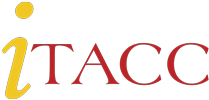Project Name
ACCESS
Type of practice
Promising practice (practice is proven to achieve outcomes)
Area of Emphasis
Employment
Project/activity year(s)
2021
2020
2019
Population(s) of focus
People with intellectual and developmental disabilities
Service Providers
Strategies used
Outreach
Training
Technical Assistance
Supporting and Educating Communities
Interagency Collaboration and Coordination
Coordination with Related Councils, Committees, and Programs
Barrier Elimination, Systems Design, and Redesign
Coalition Development and Citizen Participation
Informing Policymakers
Project Description
Able South Carolina partnered with Charles Lea Center, Thrive Upstate, SC Vocational Rehabilitation, national technical assistance partners, employers, and state agencies to explore the barriers in the current employment service delivery system, build provider capacity through the creation of a comprehensive, sustainable training structure for employment service providers, and develop a pilot program that will inform service delivery and future provider transformation initiatives in SC. By focusing on providing comprehensive, quality training to professionals who serve both youth and adults, and developing a comprehensive, quality training to professionals who serve both youth and adults and developing a comprehensive infrastructure for provider collaboration, supports that offer individualized and effective employment services are strengthened.
Impact (or impact-to-date) of the project/activity for people with ID/DD and their families
A significant impact is the passing of the subminimum wage legislation, which is momentous for South Carolina. Employment First legislation was added to the Subminimum Wage legislation, and both bills were passed. The grassroots legislature advocacy efforts led, in part by partners involved in this grant, engaged people with disabilities, family members, and local DD providers to reach out to their representatives.
Another outcome is that SC Vocational Rehabilitation worked to develop policies, procedures, and fee structure to contract with DD Providers in the future to provide customized employment services, which is a big win for individuals with intellectual and developmental disabilities to have access to customized employment and for DD providers to have the financial means to provide the service.
Stories
Story perspective
Other
What were things like BEFORE you/your family/partner/community participated in the project/activity?
Part of this grant addressed systems change in the subminimum wage area. Prior to this grant, subminimum wage was legal and a practice used by some employers. In addition, Vocational Rehabilitation had no policies and procedures regarding providers and the customized employment process. People with I/DD were often labeled unemployable or paid far less than minimum wage.
What are things like AFTER you/family/partner/community participated in the project/activity?
Because of the grassroots legislature efforts within this grant program, the subminimum wage and Employment First legislation was passed. Vocational rehabilitation has since worked to develop policies, procedures, and fee structure to contract with DD providers in the future to provide customized employment services, which is a big win for people with I/DD to have access to customized employment and for DD providers to have the financial means to provide the service.
What was most beneficial to you/family/partner/community from participating in this project or practice?
The passing of subminimum wage and employment first legislation, coupled with Vocational Rehabilitations efforts to make customized employment policies, procedures, and fee structures to support service providers and people with I/DD have access to customized employment.
The role of the DD Council in achieving positive outcomes through this project.
Employment is a key area of the SC DD Council’s state plan. Council staff participated in employment coalition meetings and training and technical assistance webinars related specifically to this grant. This program has helped change a significant legislation in the state of South Carolina, which is a huge win for people with I/DD in this state.
Contact Information
Name: Lori Rodgers
Email: lori.rodgers@admin.sc.gov
Phone: (803) 734-0392
Council location: South Carolina
Website: https://www.scddc.state.sc.us/
